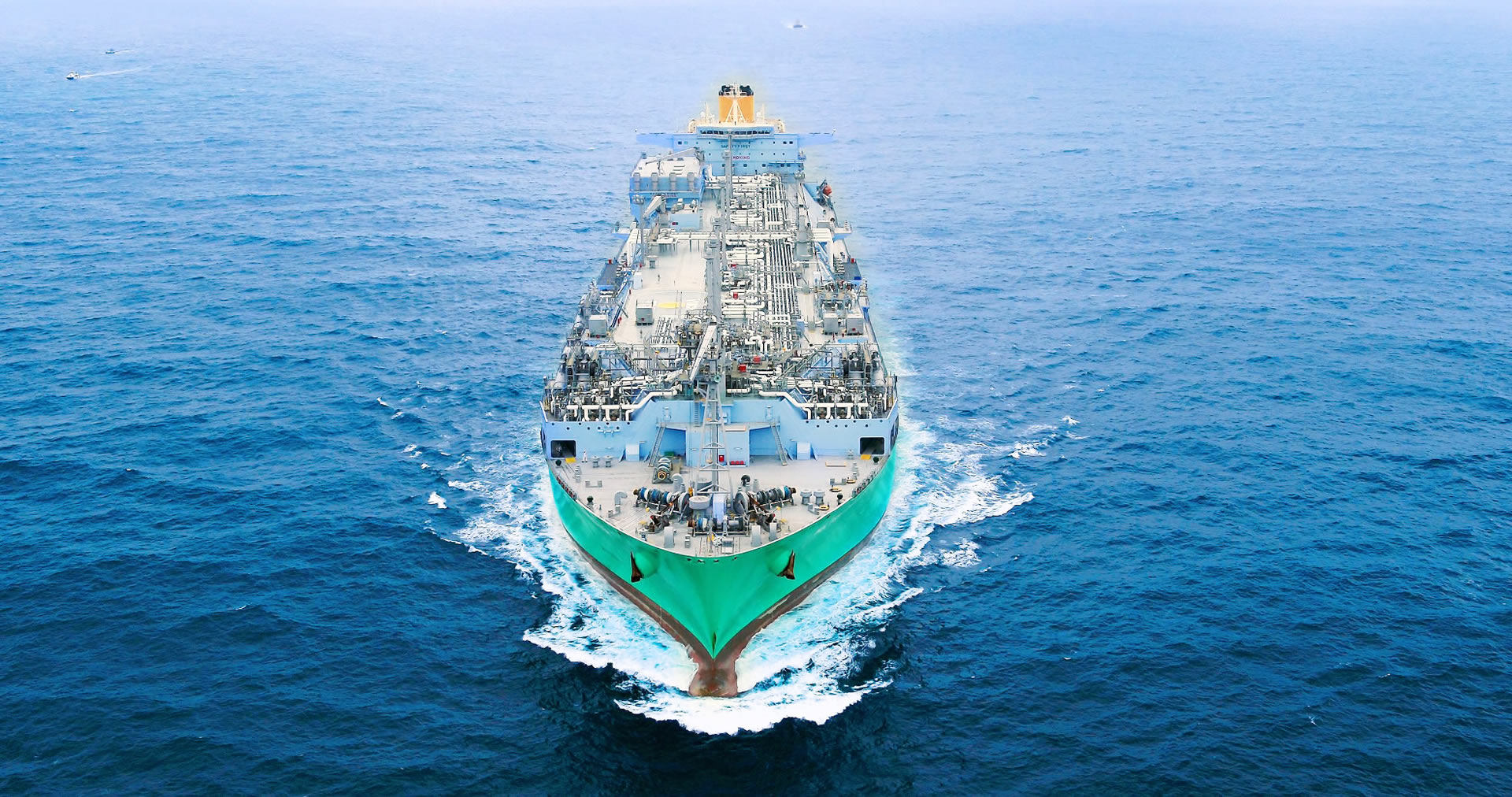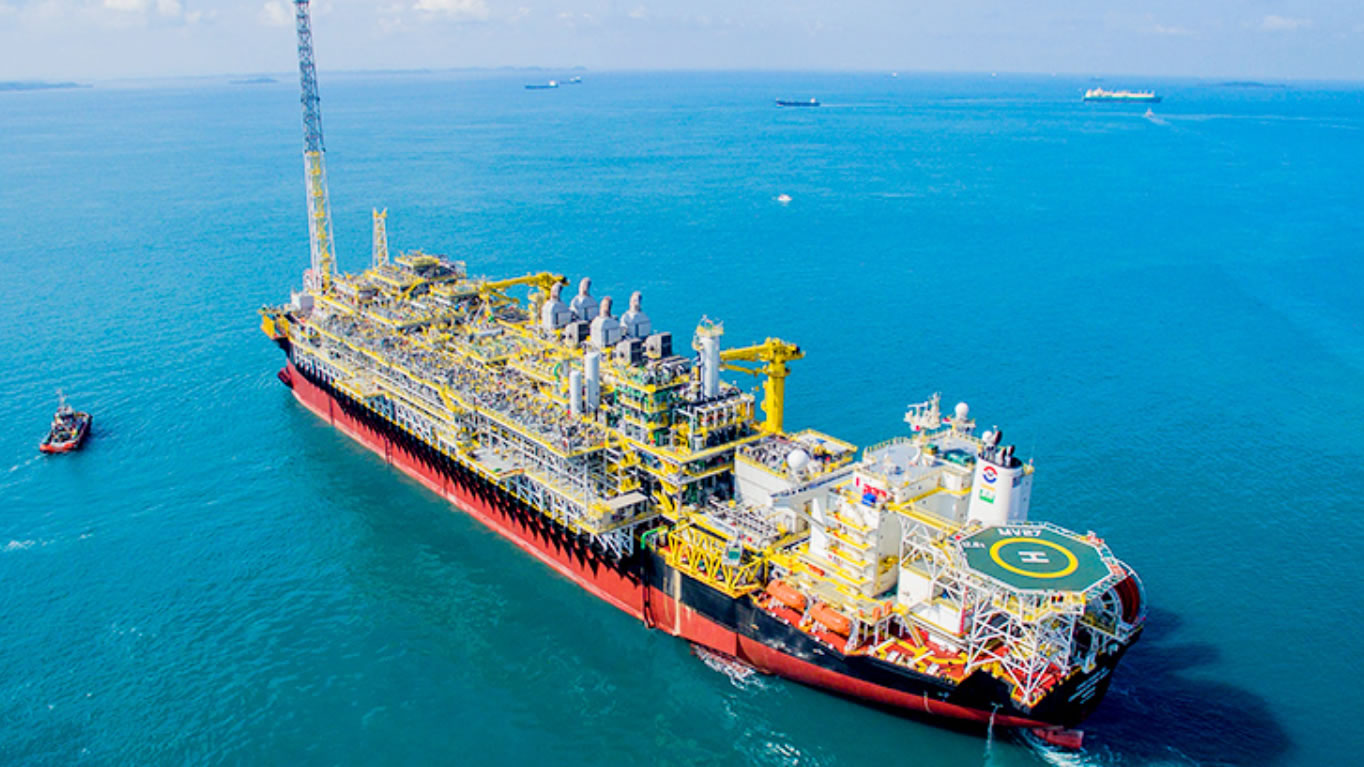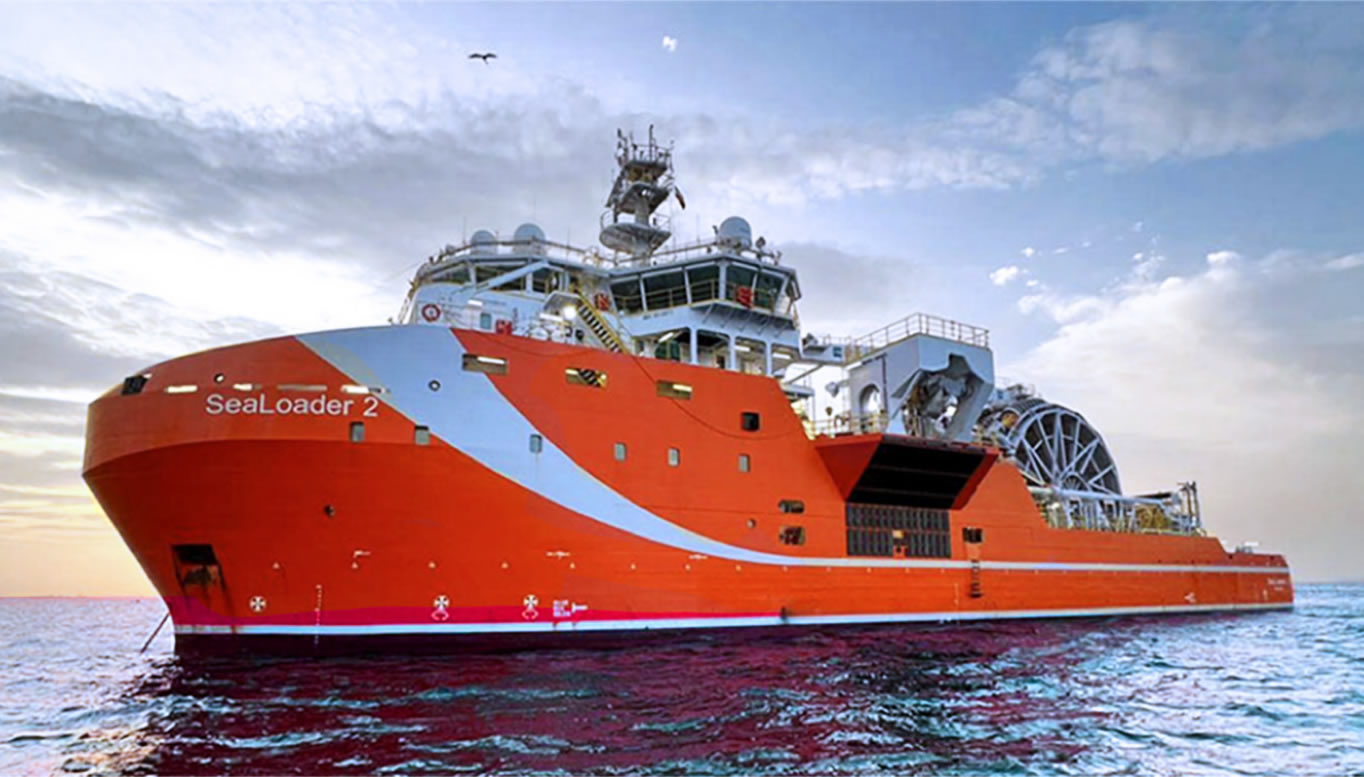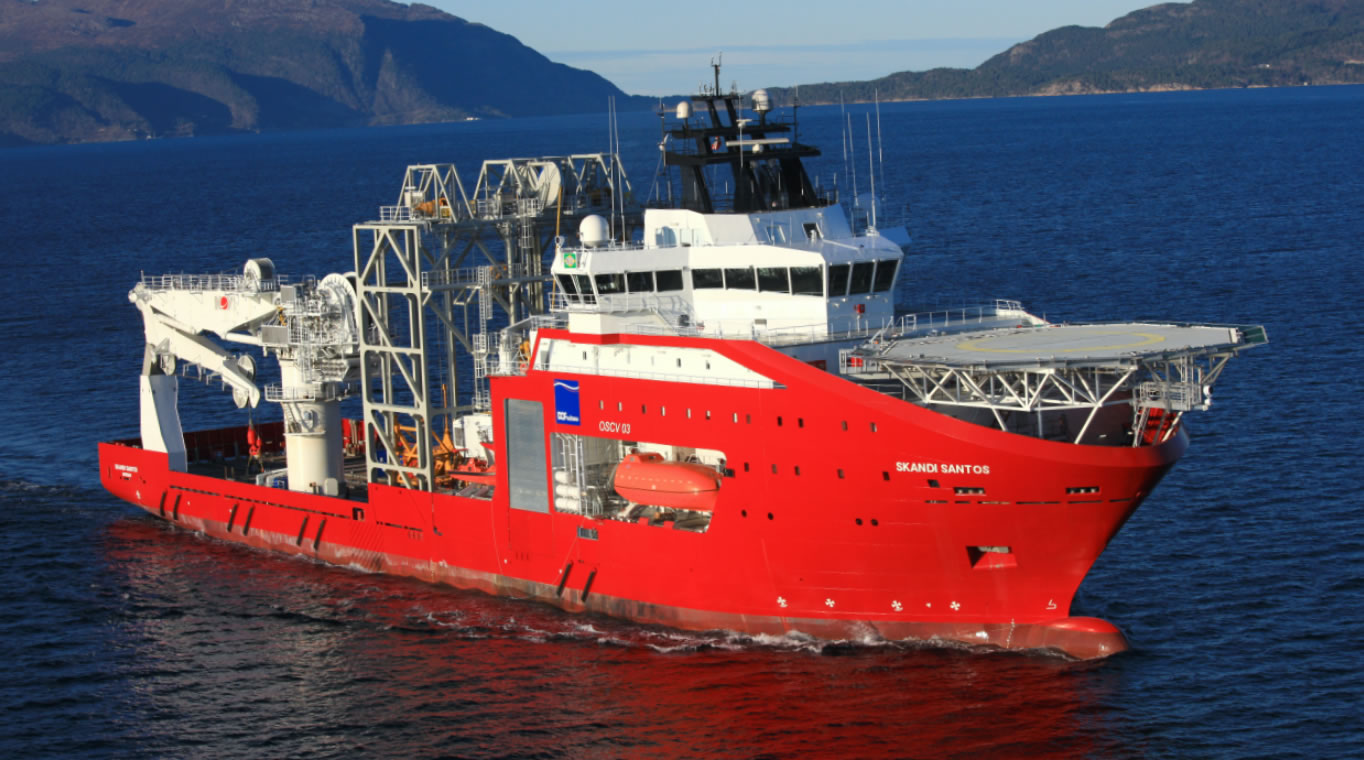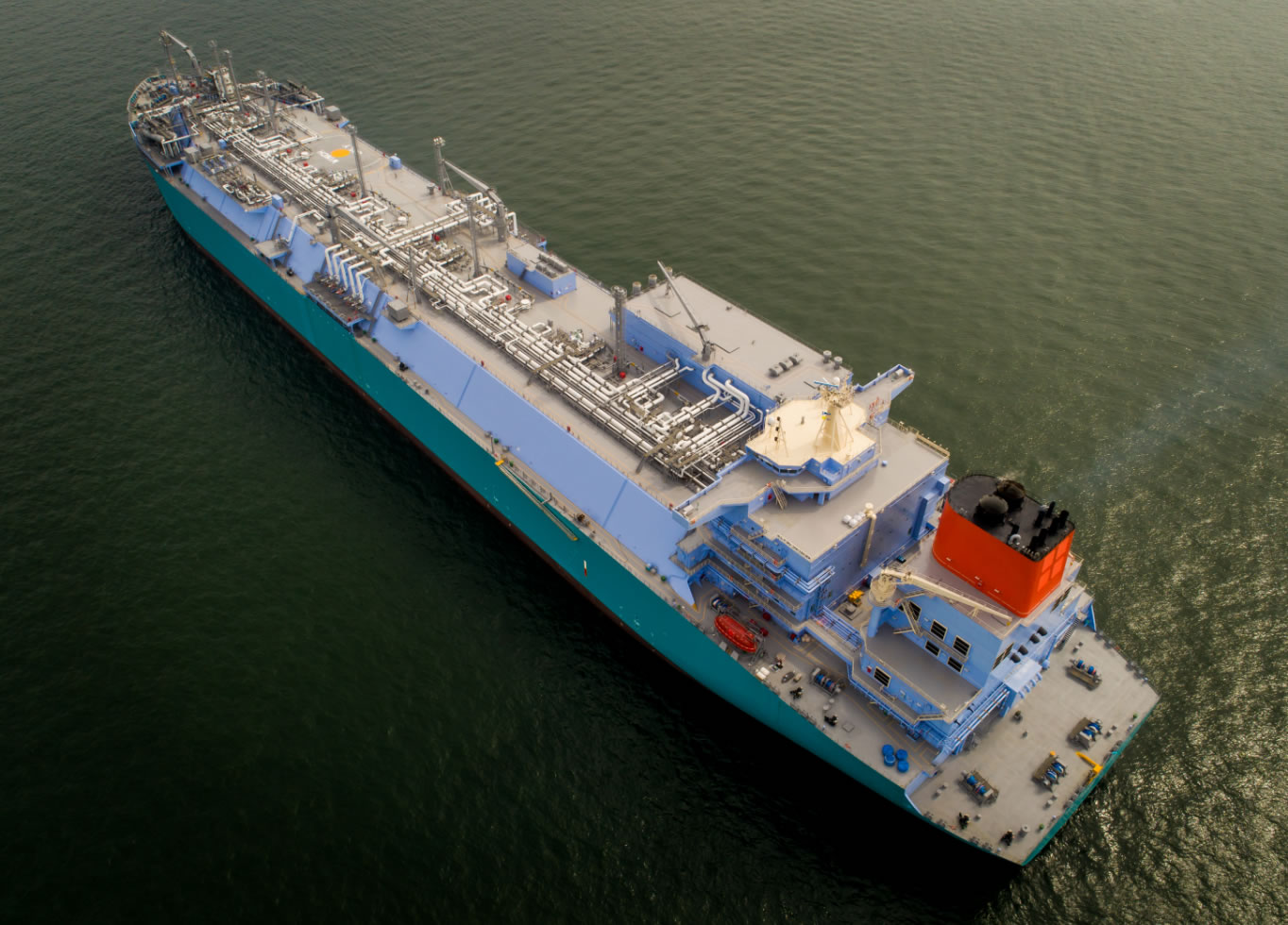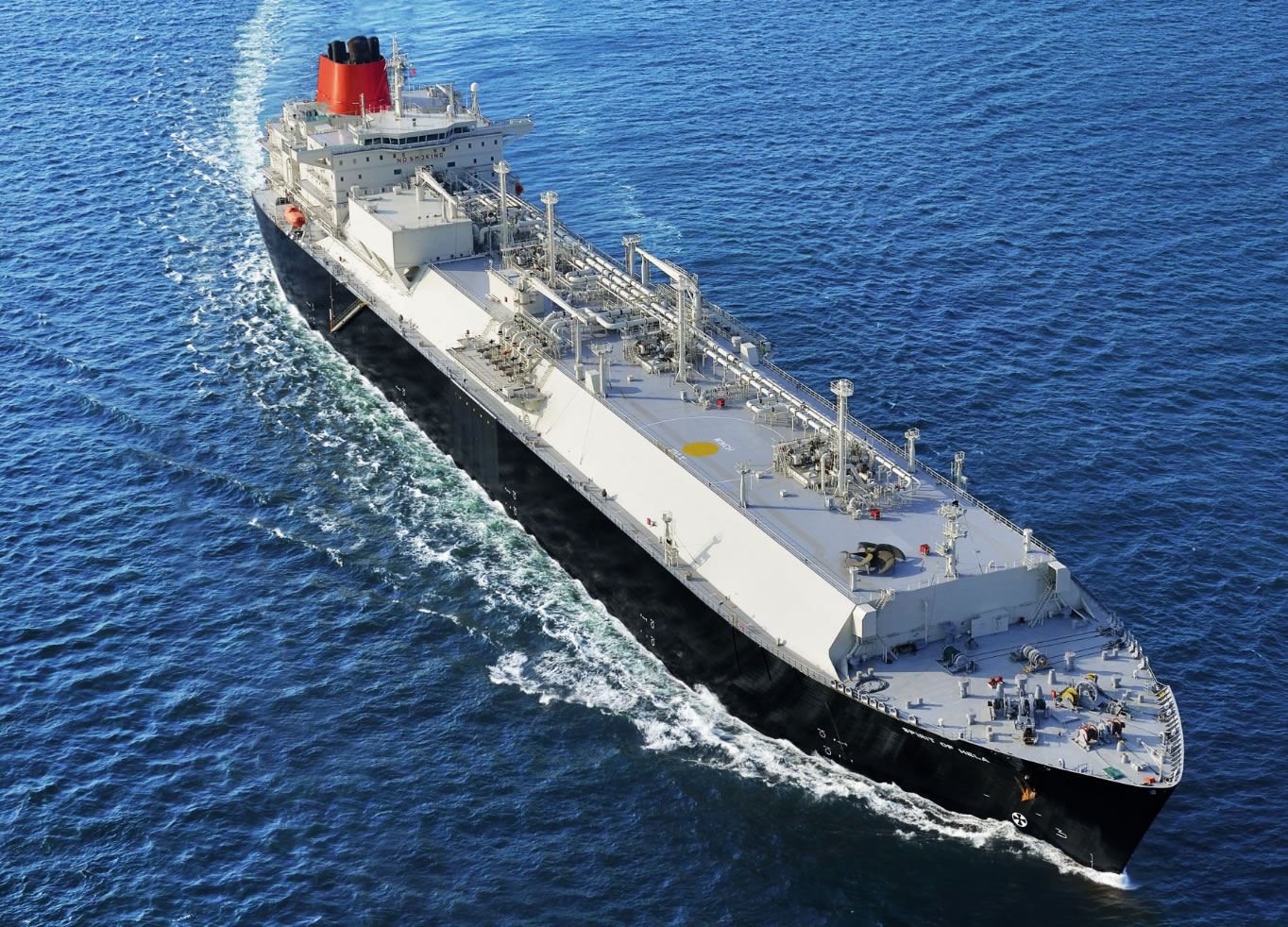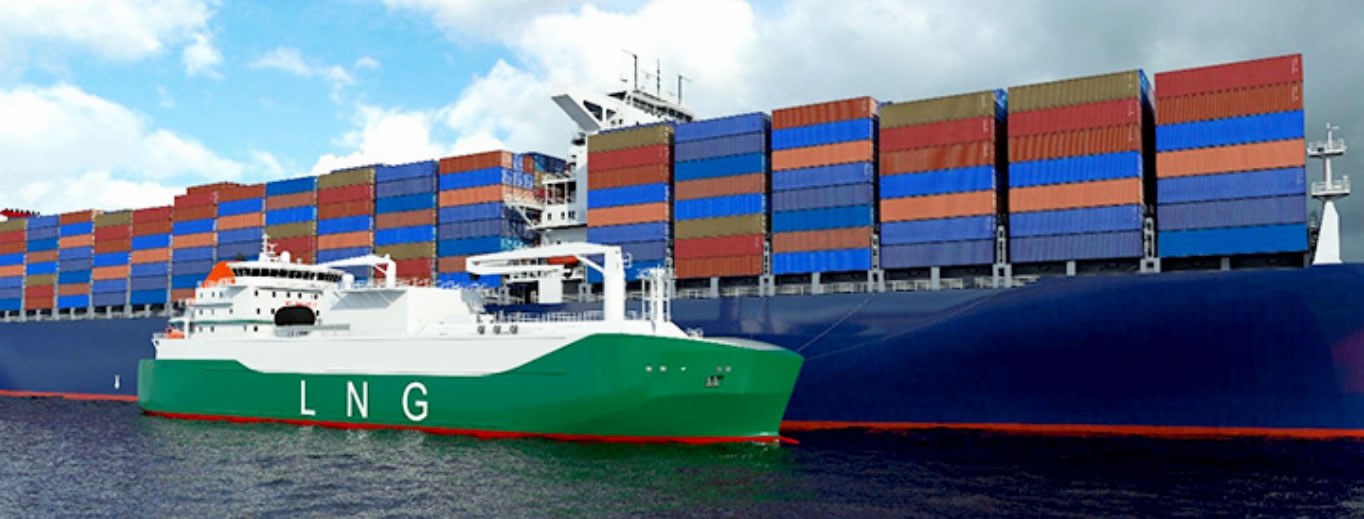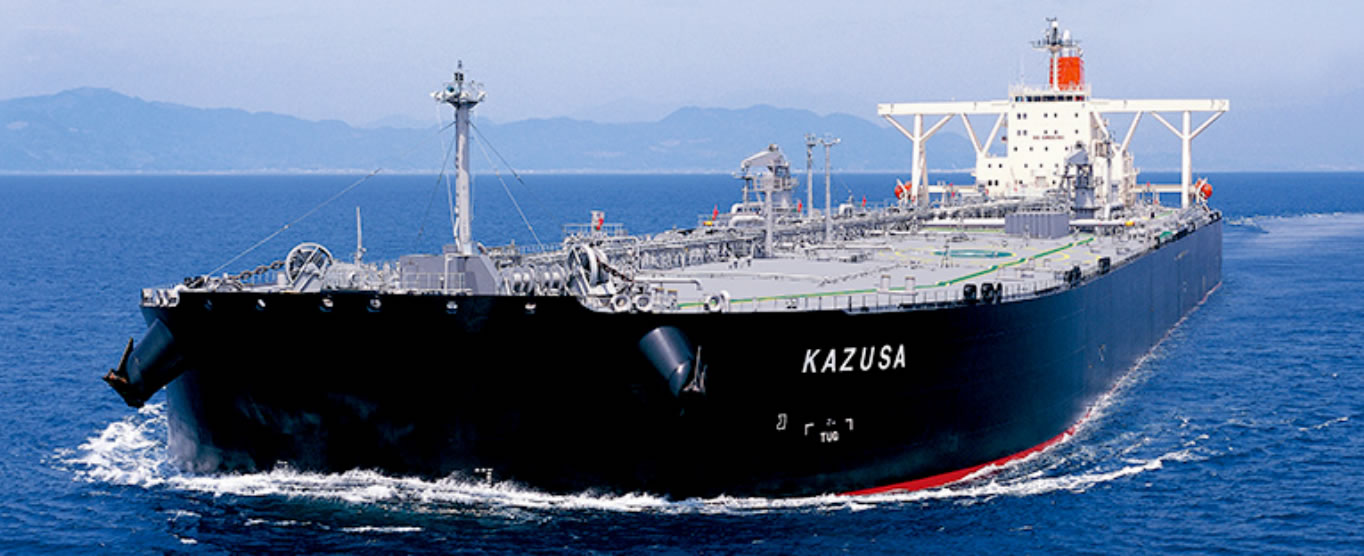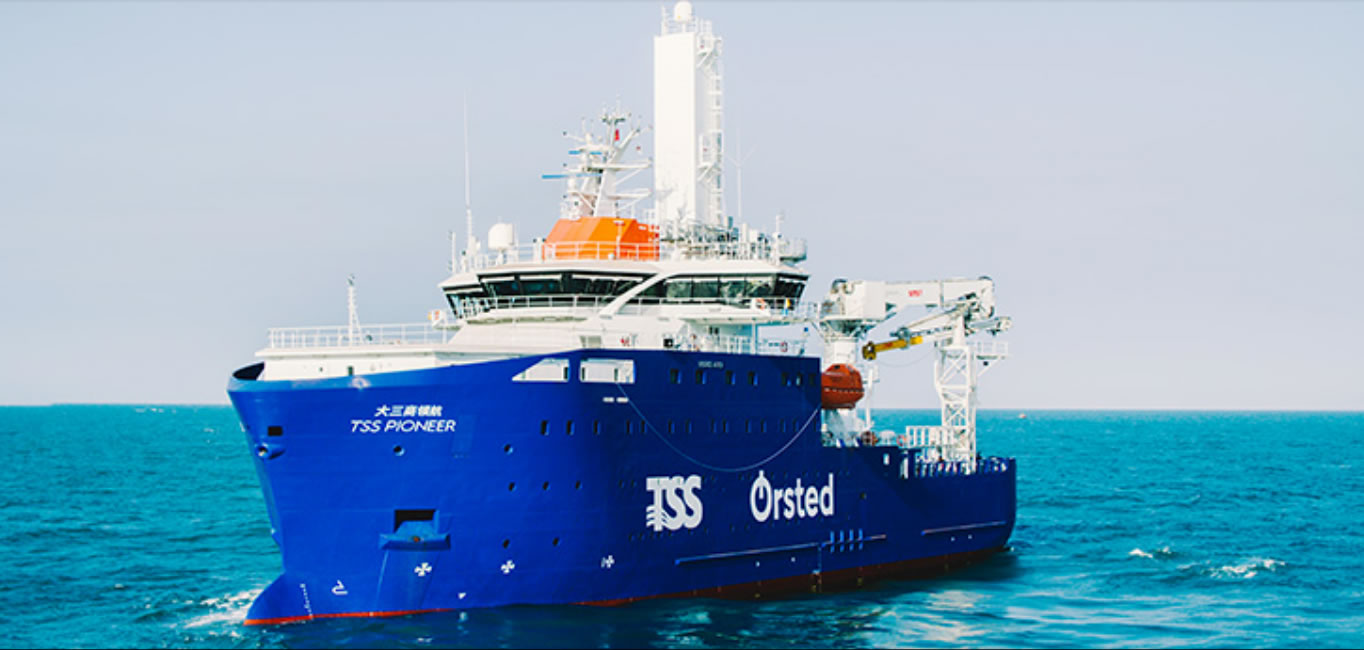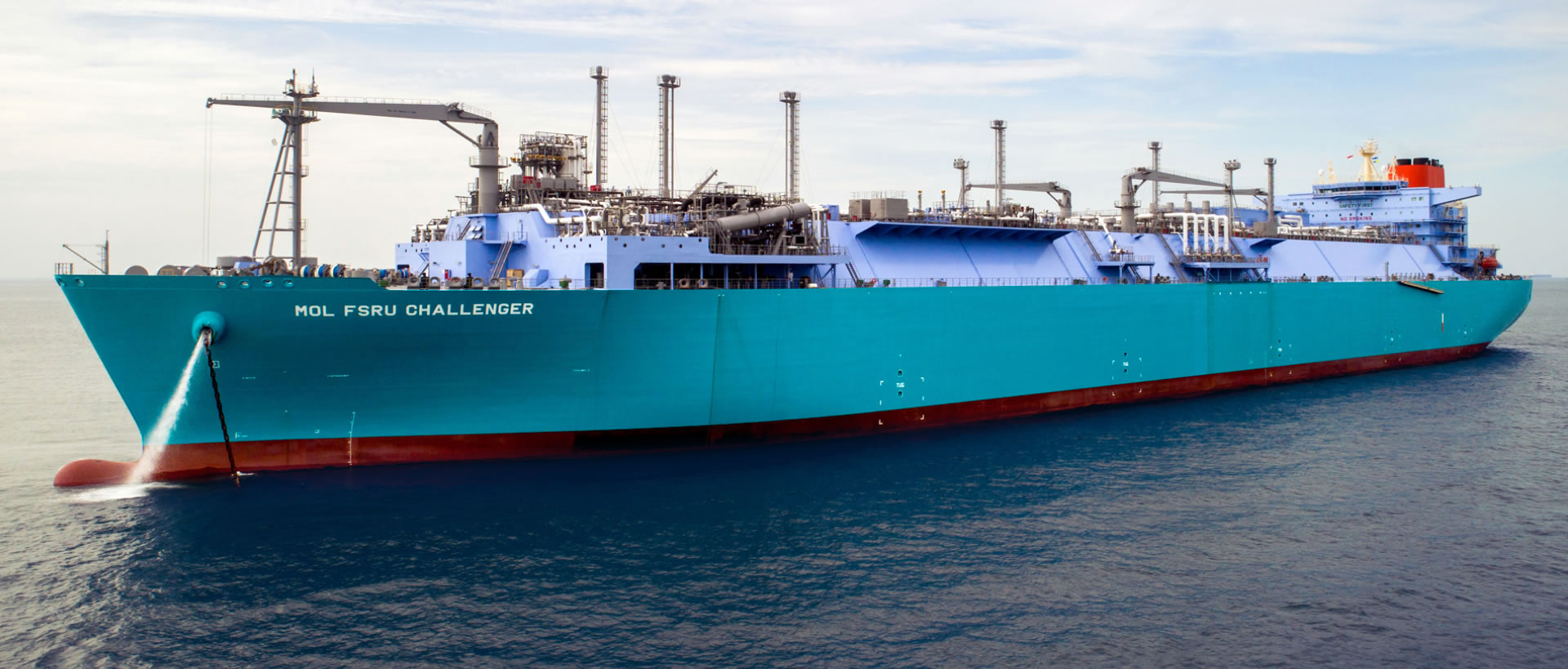MOL has moved proactively into Energy and Offshore businesses, where we expect greater growth, drawing upon the experience amassed in the operation of LNG and oil tankers. Floating production, storage, and offloading units (FPSOs) and floating storage and regasification units (FSRUs) are typical of MOL’s offshore businesses.
The company entered the FPSO business in 2010, and now participates in nine projects off the coast of Brazil, in addition to others off Ghana and Mexico. Furthermore, in 2014 we entered the shuttle tanker business, which involves transporting crude oil from FPSOs to onshore oil refineries; in 2016, we made our first foray into the subsea support business, which includes installation, maintenance, repair, and decommissioning of subsea equipment; in 2017, we entered the renewable energy business through a stake in a company that operates offshore turbine installation vessels; and in 2020 we signed a charter contract for service operation vessels (SOVs) at offshore wind farms.
MOL is also the first Asian shipping company to take delivery of an FSRU, “FSRU Challenger”, the largest in the world, with 263,000 CBM storage capacity. In 2019, based on our accumulated experience and track record in LNG carrier and FSRU operation, MOL and Karpowership of Turkey jointly started an LNG powership business combining an FSRU and powership.
In 2021, MOL entered the business of transporting liquefied carbon dioxide (LCO2) by sea. LCO2 carriers will play an important role in the CCUS (Carbon Dioxide Capture, Utilization and Storage) value chain, which is drawing attention as a means of realizing a low-carbon and decarbonized society, by efficiently connecting the capture and LCO2 to storage areas.
